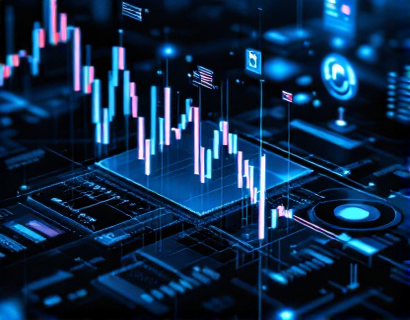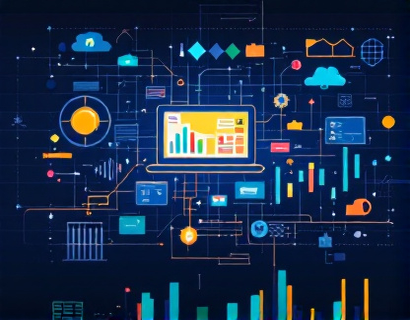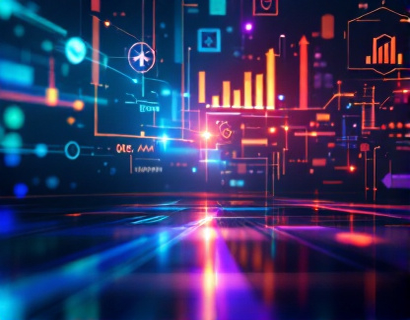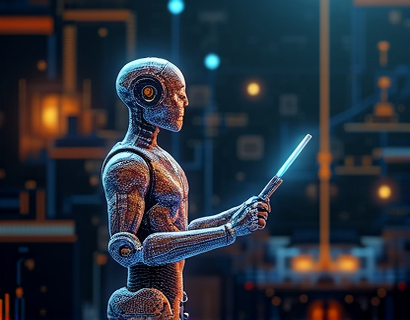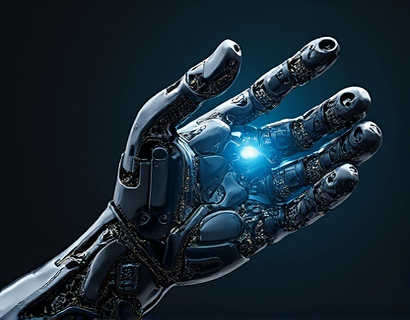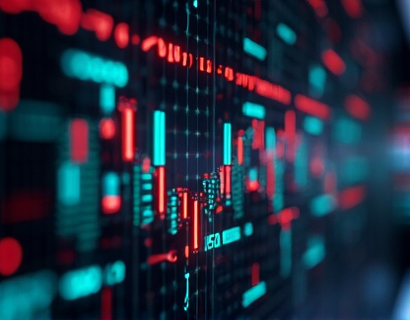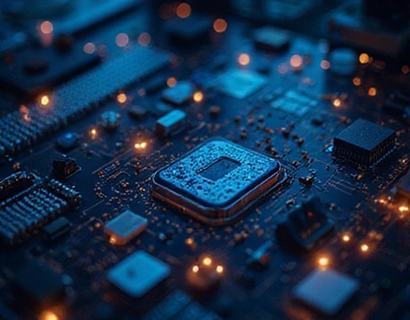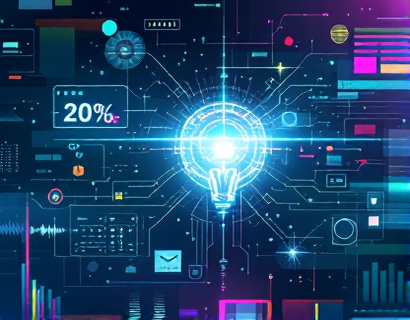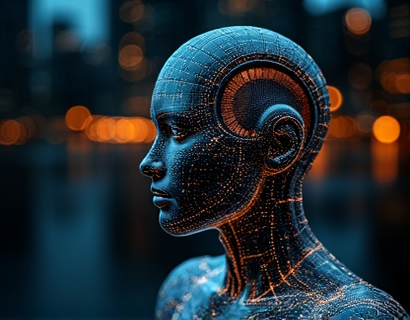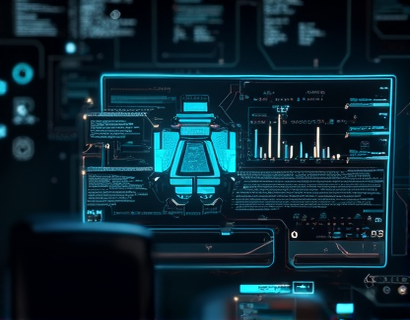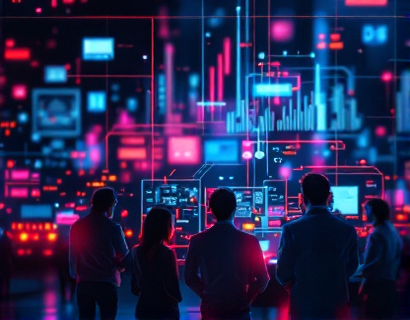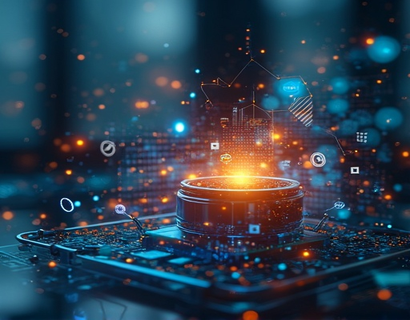AI and Crypto Fusion: Revolutionizing Digital Finance and Technology Experiences
The integration of artificial intelligence (AI) with cryptocurrency is ushering in a new era of digital finance and technology, transforming the way we interact with financial systems and technological applications. This fusion, often referred to as TechFinance, is not just a trend but a fundamental shift that is redefining the landscape of digital transactions, security, and user experiences. As we explore this transformative power, it becomes evident that the combination of AI and cryptocurrency is setting new standards in innovation, efficiency, and user-centric design.
The foundation of this revolution lies in the unique capabilities of both AI and cryptocurrency. AI, with its advanced algorithms and machine learning techniques, brings intelligence, adaptability, and predictive power to the table. Cryptocurrency, on the other hand, represents a decentralized, secure, and transparent form of digital currency that operates on blockchain technology. When these two powerful forces converge, the potential for innovation is immense, leading to solutions that are smarter, more secure, and more accessible than ever before.
Enhanced Security Through AI and Cryptography
One of the most significant benefits of the AI and crypto fusion is the enhancement of security measures in digital finance. Traditional financial systems often rely on centralized authorities to manage and secure transactions, making them vulnerable to hacks and fraud. In contrast, blockchain technology, the backbone of most cryptocurrencies, provides a decentralized and immutable ledger that is inherently secure. AI further fortifies this security by detecting and mitigating threats in real-time.
Machine learning algorithms can analyze vast amounts of data to identify patterns and anomalies that may indicate fraudulent activity. For instance, AI can monitor transaction patterns and flag suspicious activities, such as unusual transaction volumes or geographically inconsistent logins. This proactive approach to security not only protects users' assets but also builds trust in the cryptocurrency ecosystem. Moreover, AI-driven security solutions can adapt to new threats as they emerge, ensuring that the system remains robust and resilient.
Smart Contracts and Automated Processes
Smart contracts, self-executing contracts with the terms directly written into code, are another area where AI and cryptocurrency intersect to revolutionize digital finance. These contracts automatically enforce and execute agreements when predefined conditions are met, eliminating the need for intermediaries and reducing transaction costs. AI enhances the functionality of smart contracts by providing intelligent automation and decision-making capabilities.
For example, AI can analyze market data and automatically execute trades based on predefined strategies, optimizing investment decisions and maximizing returns. In the realm of supply chain management, AI-powered smart contracts can ensure that payments are released only when specific conditions, such as the delivery of goods, are met. This level of automation not only streamlines processes but also reduces the risk of human error and fraud.
Personalized User Experiences
The fusion of AI and cryptocurrency is not only about security and automation; it is also about creating personalized and seamless user experiences. AI algorithms can analyze user behavior, preferences, and financial goals to provide tailored recommendations and services. This personalization extends to everything from investment advice to wallet management and beyond.
For instance, a cryptocurrency wallet powered by AI can learn a user's spending habits and suggest optimal times for transactions to minimize fees. It can also offer real-time insights into market trends, helping users make informed decisions about when to buy or sell. Additionally, AI-driven chatbots and virtual assistants can provide 24/7 customer support, answering queries and guiding users through complex financial operations with ease.
Decentralized Finance (DeFi) and AI
Decentralized Finance, or DeFi, is a rapidly growing sector that leverages blockchain and smart contracts to create financial services without traditional intermediaries. The integration of AI into DeFi platforms is opening up new possibilities for financial inclusion, accessibility, and innovation. AI can enhance DeFi protocols by improving risk assessment, fraud detection, and portfolio management.
One notable application is AI-driven lending and borrowing platforms within the DeFi ecosystem. These platforms use machine learning to assess creditworthiness more accurately and efficiently than traditional methods. By analyzing a wide range of data points, including transaction history and social media activity, AI can provide a more comprehensive view of a user's financial behavior, enabling better lending decisions. This not only expands access to credit for underserved populations but also reduces the risk of default for lenders.
Predictive Analytics and Market Insights
AI's ability to process and analyze large datasets makes it an invaluable tool for predictive analytics in the crypto space. Traditionally, market predictions have been based on historical data and expert opinions, but AI can take this to a whole new level. By analyzing real-time market data, news sentiment, and other relevant factors, AI algorithms can generate highly accurate forecasts of price movements and market trends.
These predictive insights can be crucial for traders and investors looking to make informed decisions. AI-powered trading bots can execute trades based on these predictions, optimizing portfolios and maximizing returns. Moreover, financial institutions and regulatory bodies can leverage AI-driven analytics to monitor market conditions, identify potential risks, and enforce compliance more effectively.
Cross-Chain Interoperability and AI
As the cryptocurrency landscape continues to evolve, the need for cross-chain interoperability becomes increasingly important. AI plays a pivotal role in facilitating seamless interactions between different blockchain networks, enabling a more interconnected and efficient ecosystem. AI algorithms can optimize routing, ensure data consistency, and enhance security across multiple chains.
For example, AI can manage the complex process of atomic swaps, where two parties exchange cryptocurrencies directly without the need for a central exchange. By analyzing network conditions, transaction fees, and security protocols, AI can determine the most optimal path for the swap, ensuring a smooth and secure transaction. This level of interoperability not only enhances user experience but also fosters innovation by allowing developers to build more complex and integrated applications.
Challenges and Considerations
While the fusion of AI and cryptocurrency offers numerous benefits, it also presents several challenges that need to be addressed. One of the primary concerns is the regulatory landscape. As AI and crypto technologies evolve, regulators are grappling with how to oversee these innovations without stifling growth. Ensuring compliance with existing laws while fostering a supportive environment for AI and crypto integration is a delicate balance.
Another challenge is the ethical use of AI. The deployment of AI in financial systems raises questions about privacy, bias, and transparency. It is crucial to develop AI systems that are fair, accountable, and transparent, ensuring that they do not perpetuate existing inequalities or infringe on user privacy. Additionally, the technical complexity of AI and blockchain requires a skilled workforce, which can be a barrier to widespread adoption.
Future Prospects
Looking ahead, the future of AI and crypto fusion is bright, with numerous exciting developments on the horizon. One area of focus is the integration of AI with other emerging technologies, such as the Internet of Things (IoT) and 5G networks, to create a more interconnected and intelligent financial ecosystem. AI can leverage real-time data from IoT devices to provide hyper-personalized financial services and insights.
Furthermore, the development of more advanced AI models, such as quantum AI, could revolutionize the way we process and analyze data in the crypto space. Quantum computing, with its ability to perform complex calculations at unprecedented speeds, can enhance AI's predictive capabilities and optimize blockchain operations. This synergy could lead to breakthroughs in areas like cryptography, making financial transactions even more secure and efficient.
In conclusion, the fusion of AI and cryptocurrency is not just a technological advancement but a transformative force that is reshaping the digital finance landscape. By enhancing security, automating processes, personalizing user experiences, and enabling decentralized finance, this fusion is setting new standards for innovation and user-centric design. As we continue to explore and harness the potential of AI and crypto, the future of digital finance looks more promising than ever.




